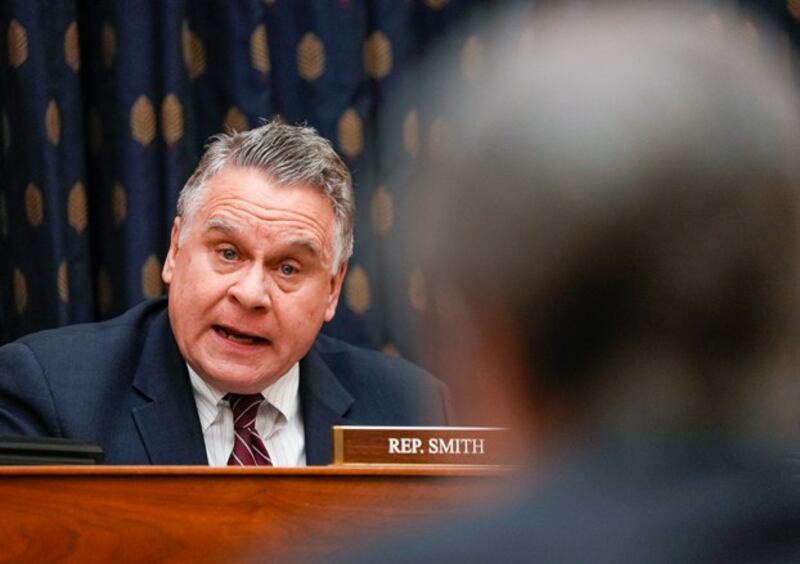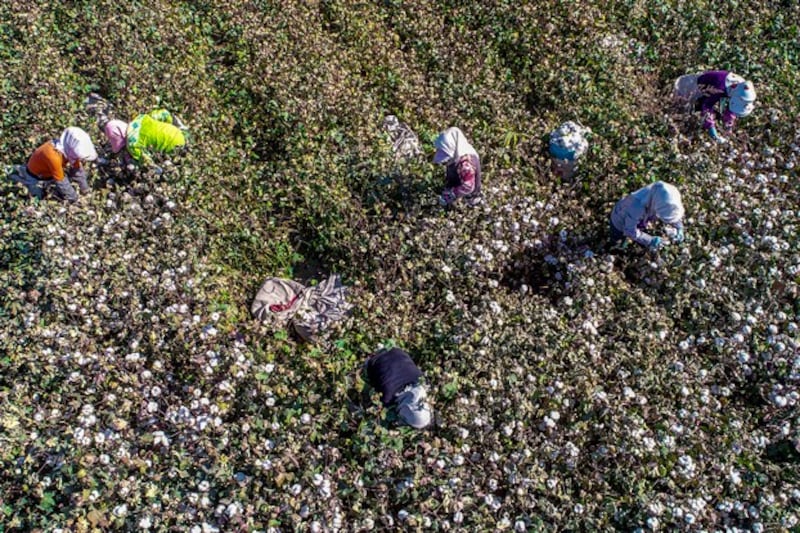The U.S. has added 26 Chinese textile “intermediary companies" to its blacklist of entities under legislation that prohibits imports of forced labor products, winning praise from Uyghur human rights advocates.
Effective Friday, goods produced by the named cotton traders and warehouse facilities will be restricted from entering the United States.
The Uyghur Forced Labor Prevention Act, or UFLPA, signed into law in December 2021, blocks imports from China's Xinjiang region into the U.S. without "clear and convincing evidence" they were not made with forced labor. It also authorizes sanctions on foreign individuals and entities found responsible for human rights abuses in the northwestern region.
The addition of the 26 companies – most of which operate outside Xinjiang – brings the total number of entities to 65 under the act.
Adrian Zenz, senior fellow and director in China studies at the Washington-based Victims of Communism Memorial Foundation, called the addition of the companies an important and long-overdue step that helps close a loophole.

“It has long been the case that the key challenge from Uyghur forced labor was not posed by direct exports from Xinjiang, but by Xinjiang products entering global supply chains through other intermediaries,” said Zenz, who has researched labor transfers of Uyghurs to other Chinese provinces.
“Adding substantial numbers of such intermediary companies to the entity list helps to address this loophole,” he said.
'Only a fraction'
U.S. Rep. Chris Smith, a New Jersey Republican, and Sen. Jeff Merkley, an Oregon Democrat, said they endorsed the action to nearly double the number of entities, but recognized that the list contains "only a fraction" of businesses complicit in Uyghur forced labor.
The co-chairs of the U.S. Congressional-Executive Commission on China said they wanted to see more Chinese companies in the polysilicon, aluminum, PVC and rayon industries blacklisted, as well as companies in other parts of Asia that produce U.S.-bound goods with inputs sourced from Xinjiang.
“No one should be allowed to profit from genocide,” they said in a statement issued on Thursday.
The Forced Labor Enforcement Task Force, an interagency body chaired by the Department of Homeland Security, added the companies as part of the U.S. commitment to eliminating forced labor in the U.S. supply chain and promoting accountability for the ongoing genocide and crimes against humanity facing Uyghurs and other Muslim groups in Xinjiang, said a statement issued by the department.

The designation of the 26 textile manufacturers, which source cotton from Xinjiang, will make it easier for responsible companies to conduct due diligence on their supply chains to ensure they do not include goods made with forced labor, the statement said.
“We will continue to execute on our textile enforcement strategy and hold the PRC [People’s Republic of China] accountable for their exploitation and abuse of the Uyghur people,” said Secretary of Homeland Security Alejandro Mayorkas.
The U.S. government and some Western parliaments have deemed China’s mistreatment of the Uyghurs a genocide and crimes against humanity.
The United Nations Office of the High Commissioner of Human Rights said in an August 2022 report that “serious human rights violations” committed in Xinjiang may constitute crimes against humanity.
With reporting by RFA Uyghur. Edited by Joshua Lipes.
